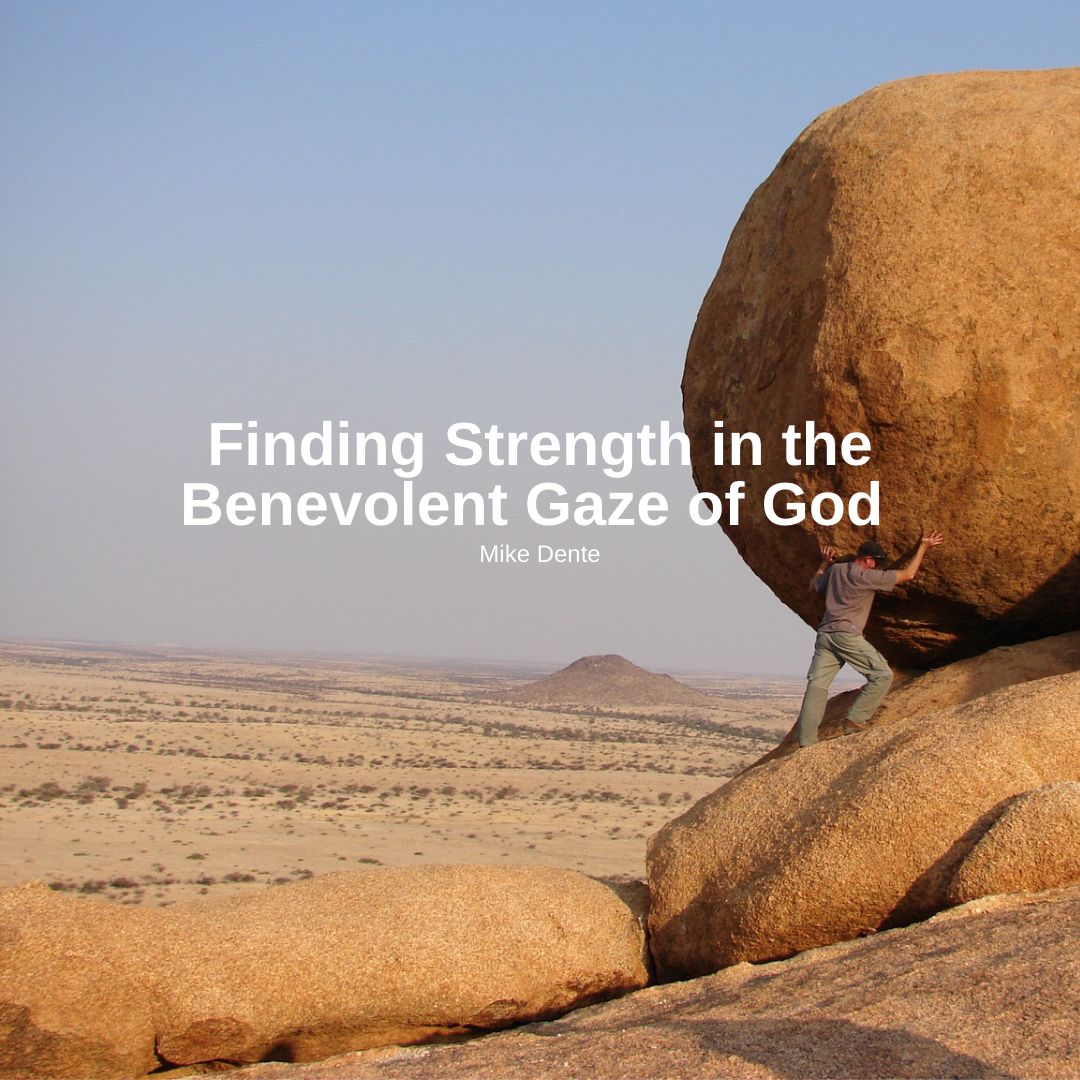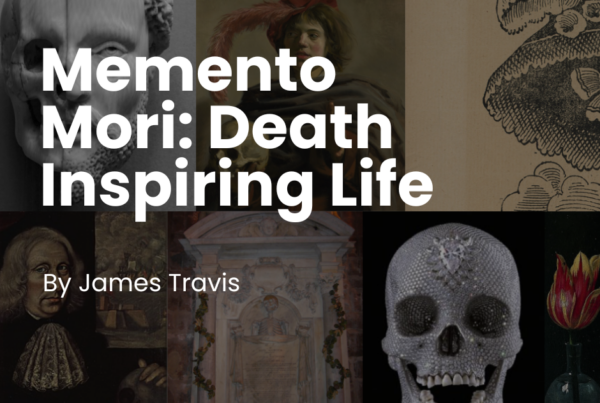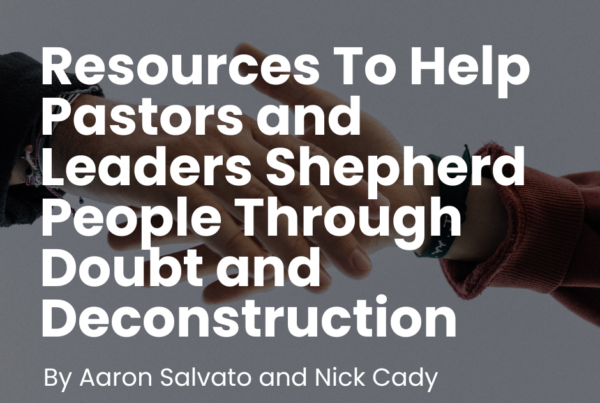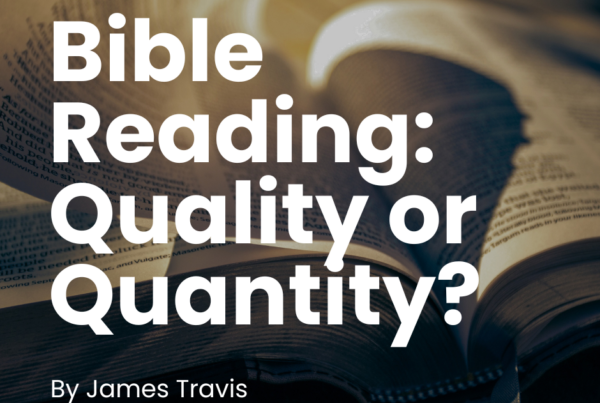
Last November, I wrote an article about knowing God as a conventional relationship. I developed an idea from John Frame that describes how profound our friendship with the Father is. It’s a living, loving knowledge we experience that grows through time. Even when things are uncertain or anxiety and frustration run as an undercurrent to the current conversation—He promises to walk through it with us. He will see to it. We know our generous God gives us the courage to face the challenges of today. We know this because we know Him, and He sees us. Living consciously under His watchful gaze adds a perspective that deepens our friendship with the Almighty. Not that we look for the quick fix, easy answer that places a Band-Aid and smiles over a heart truly shaken; instead, in reality, we look to His provision.
When it comes to provision, the question isn’t only financial: it’s the condition of the heart. His providence (the fact that He takes care of his Creation, guides it, maintains it, and uses it to accomplish His purposes) enables us to know Him. It would be wrong to claim that God doesn’t see. In His provision (taking care of us), He also walks with us in our troubles, enabling us to walk with others in theirs, as He did with Abraham in Genesis 22.
How Abraham Found the Strength He Needed
The patriarch’s faithfulness in the passage is remarkable. I can’t imagine a father’s stress, confusion, and sadness in such a situation. Moreover, God said: “Take your son, your only son Isaac, whom you love” (v. 2). Abraham obeyed; he got up early (v. 3) and walked for three days following the Lord (v. 4).
The small conversations in the passage reveal the human side of his trial. It’s the theology of everyday life. God called him by name, and Abraham immediately answered, “Here I am” (vv. 1, 11). He listened to the Lord. But I’d go further to say Abraham lived by listening to God. He knew the presence of God, as his shield (Genesis 15.1), as a friend (Isaiah 41:8), as the provider of a new homeland (Hebrews 11:14-15), and as the One who always keeps His promises. The way Abraham spoke to God reminds me of something Dallas Willard wrote:
“The air that our souls need also envelops all of us at all times and on all sides. God is round us in Christ on every hand, with his many-sided and all-sufficient grace. All we need to do is open our hearts.”1
Abraham’s heart was open, living under God’s kind and watchful eye—experiencing Him in the daily routine, answering Him when the call led him to a place beyond comprehension.
I’m also fascinated by the conversation between Abraham and Isaac (vv. 6-8). Isaac sees everything that happens and questions his father about the apparent lack: Where is the lamb? Isaac was curious, but Abraham’s answer reassures us about God’s providence: “God will provide for himself the lamb for a burnt offering, my son.” (v. 8). He trusts in the One who has provided everything until that moment, hoping in the resurrection (Hebrews 11:19), even while discovering the reality of the trial.
God Sees To It
To return to God’s provision, it’s in verse 8 where we come across the word י ר א ה (Yi-ré-he), which is traditionally transliterated as Jireh. It comes from the Hebrew verb ראה (r’h), which means to “see,”2 meaning that God will see for himself or see to it.3
This is why we read in verse 8 that God “provides” a lamb; He saw to it. In other passages, we translate the same verb (י ר א ה or Yi-ré-he) as “appearing” in Exodus 3:16, Leviticus 9:4, and 1 Samuel 3:21.
If, in these passages, (ראה – r’h) means that God appears in one way or another, why would Bible translators put “provide” here? Because literally, that’s what happens in verse 13. Abraham raised his head and saw that God had provided a ram caught by the horns in the bush beside it. However, “see” (ראה) is still nuanced in the text. Interestingly, in their translation of Genesis and Rashi’s commentary, the French rabbinate incorporates the meaning of the verb “to see” in the text.
What’s the relationship between “seeing” and “providing”? The verb to see (ראה) in Genesis 1 reads that God “saw that it was good.” True, this is a description of the work of Creation, but isn’t it a description of His providence at the same time? God created it, saw it, and validated it. All that He made, the laws of science that run through His completed work, testify to His seeing that all His creatures should be well cared for in His creation.
Thus, the link between “see” and “provide” also benefits us. But it’s a subject that also concerns our belonging to Him. For example, in Genesis 16:13, Hagar, mistreated by Sarah and chased away, found herself in the wilderness under God’s loving gaze. He saw. Receiving the consolation of her soul, she said: “You are the God who sees me.” Do we not find, even in her recollection of God, the provision for her life and soul in His benevolent gaze? Esther Lightcap Meek notes:
“We need the face of the Holy, the personal Other—we need it as the decentering and recentering of who we are, to be well, and to know well.”4
That means God’s provision is personal and accurate. He sees the situation in which we find ourselves, appears, and provides for our needs in a more profound way than our prayers can adequately express.
Therefore, returning to the link between “seeing” and “providing,” there was no question of God allowing Abraham to sacrifice his son. He provided a ram, and then in 2 Chronicles 3:1, on Mount Moriah, where the scene took place (v. 2), provided what would become the site of the Temple and the perpetual sacrifice. This is where YHWH says, “I will always have my eyes and my heart there” (2 Chronicles 7:16). The place He saw, where He provided, was also where He appeared. To use the reflective verb Jireh, God provided or saw to it himself in Jesus, according to the words of John the Baptist in John 1:29, “Behold, the lamb of God who takes away the sin of the world.” The words reflect a beautiful image of Jesus and the Father. The Father sends the Son, his “beloved, his only” (John 3:16), to become the substitute for all the Isaacs of the world. We’re not far from the model of “Jireh”: God sees, appears, and provides.
How We, Too, Can Find the Strength We Need … and More
That’s why it’s too restrictive to see this passage only in light of our financial or physical needs. I believe that the passage speaks instead of the Person who embodies the providence of God and who is, in reality, all that we need. Of course, we need God to provide for everything in this economy and time of social uncertainties. That isn’t a quick-fix solution but more of a long-term accompanying of His presence and work in our lives. Yes, He taught us to pray for daily bread, and He will provide. But, even more, we need to receive Jesus. He sees us, knows our struggles, and His gaze toward us is full of lovingkindness. Looking back into His strong, comforting eyes in times of silence and biblical meditation will give us the strength we need. It’ll also enable us to enjoy His presence as we wait for Him to see to it.
References
1 Dallas Willard, The Divine Conspiracy, (New York: Harper Collins Publishers, 1998), 90.
2 The “yod” (י) shows us that the verb is conjugated to the “niphal,” which gives it a reflexive or passive tense.
3 John Piper, Providence, (Wheaton: Crossway, 2020), 30-32.
In the first chapter, “What is Divine Providence?”, Piper explains how the English word providence, as used in this passage, came about. First, he begins with the Latin suffix pro (to), and the verb vide (to see). Then he explains the theological rationale for the translation of the word provide: “The answer I suggest is that in the mind of Moses, and other authors of Scripture, God does not simply see as a passive bystander. As God, he is never merely an observer. He is not a passive observer of the world—and not a passive predictor of the future. Wherever God is looking, God is acting. In other words, there is a profound theological reason why God’s providence does not merely mean his seeing, but rather his seeing to.”
4 Esther Lightcap Meek, Loving to Know: Introducing Covenant Epistemology, (Eugene: Wipf and Stock Publishers, 2011), Kindle 287.










